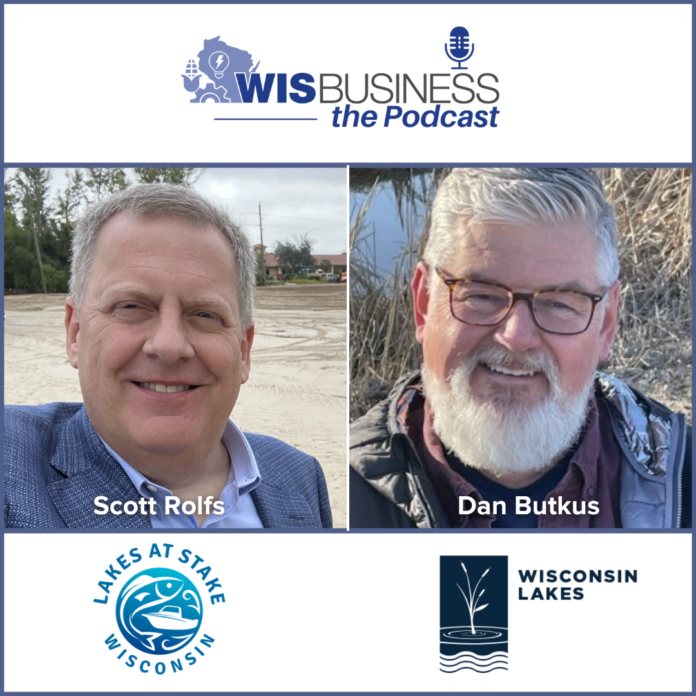This week’s episode of “WisBusiness: the Podcast” is with Dan Butkus and Scott Rolfs, two members of a coalition that’s pushing for greater regulation of wake-enhanced boating.
Butkus is the president of lake group association Wisconsin Lakes and Rolfs is president of Lakes At Stake Wisconsin, which was formed last year in response to concerns about the impacts of wake-enhanced boats on lakes in the state. The growing coalition now has dozens of member organizations and recently released a series of policy positions they’re backing.
These include: keeping wake-enhanced boating activities at least 700 feet from any shoreline; restricting such activities to water 30 feet or deeper; requiring boats moving between lakes to prove they have decontaminated their ballast tanks to prevent the spread of invasive species; and preserving local municipalities’ ability to enact more restrictive local ordinances.
“We had so many people on Wisconsin lakes, whether they be fishermen, sailors, people who own properties on lakes, boaters, canoers, you name it — who were seeing really detrimental effects from wake surfing and wake boat use,” Rolfs said.
He argues “there’s a very significant majority of people out there who want some type of common sense reform” to address these concerns.
Wake boats can take on hundreds of gallons of water in their ballast tanks, pushing the craft downward into the water to create a large wake for water sports. Rolfs says these boats have only been used on Wisconsin lakes over the past 10 years or so, highlighting “negative impacts” such as shoreline erosion, damage to piers and docks and disruption to underwater fish habitats.
“We’ve also seen issues with hazardous wakes, where people have been out in their boat recreating, maybe they’re on a dinner cruise or something, having some beers, and these waves hit extremely hard against other boats,” he said. “We have incidents that have happened where people have been injured, broken bones, etcetera.”
Butkus says coalition members are “looking to shared use” of Wisconsin’s resources, not an outright ban for wake-enhanced boats.
“Many people have found it difficult to share the lake when lake boats become present,” he said. “Anglers, canoists, kayakers, paddle boarders — you know, I own property in south central Onetta county on a lake … when these guys come out, we have to go in.”
The coalition now has dozens of members and continues to add more, ranging from fishing groups to environmental advocates and conservation groups such as Wisconsin’s Green Fire.
Listen to the podcast below, sponsored by UW-Madison:







